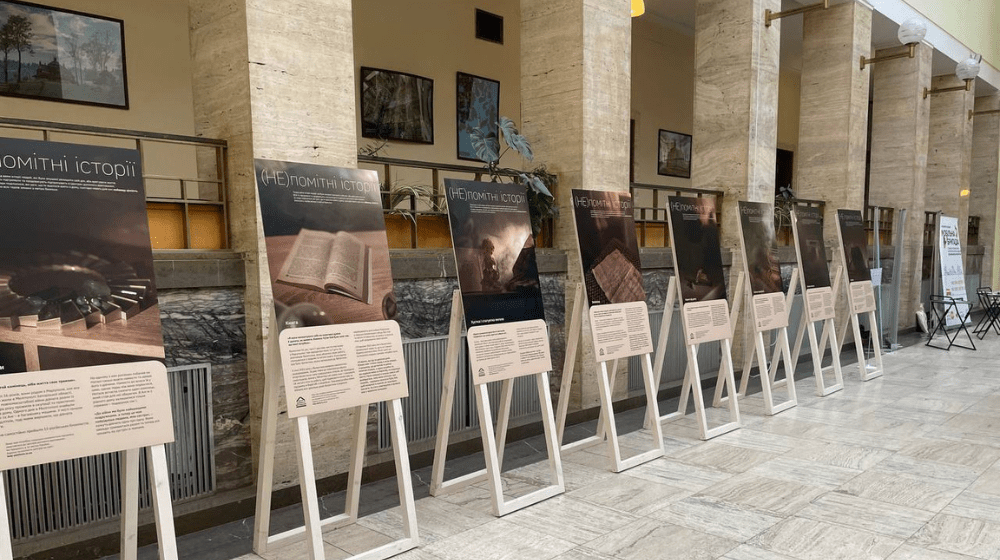The photo project tells the stories of 9 people who survived captivity, deportation, conflict-related sexual violence, or were forced to leave their homes because of the war. The photos show the most valuable things that the project's heroes took with them during the evacuation: keys to an apartment in Berdiansk, a book from the Mariupol library, the blue and yellow ribbon with which the hero was captured in Kherson and others. In 10 Ukrainian cities, the photo project "(Un)noticeable stories" can be viewed for free at the Survivor Relief Centers.
«In the Survivor Relief Centers, internally displaced Ukrainians find solace through invaluable social and psychological support. Beyond these vital services, the compassionate support from the community plays a pivotal role. Our photo project, '(Un)visible Stories,' endeavors to unveil the belongings of nine resilient individuals, transcending the fog of statistics to reveal entire lives, memories, and dreams disrupted by the ravages of war. This poignant reminder emphasizes the urgency of aiding adaptation and offering steadfast support to those who, due to the war, have been compelled to rebuild their lives far from home.» — says Massimo Diana, UNFPA Representative in Ukraine.
Among the things captured in the photo project are jewelry that the Russian military tried to take off the girls at the checkpoint, the only bag the woman managed to take from home before being deported, a note from a friend who remained in the non-government-controlled areas of Ukraine, and others.
The exhibition is available at the Survivor Relief Centres in 10 cities of Ukraine: Kyiv, Lviv, Zaporizhzhia, Dnipro, Odesa, Poltava, Kropyvnytskyi, Chernivtsi, Mukachevo, Kharkiv.
Survivor Relief Centers addresses and opening hours are available here.
Nine (un)noticeable stories of the project's heroes
«I keep my bag not to remember. I already remember every word, day, and hour. I want to keep it because I used to leave my house with this bag»
Olena Pavlivna, 54, is a primary school teacher. She worked at the school in her native village, and after it was closed, she organized a cultural and leisure center there. On the 24th of February, she was supposed to record a concert in the center for the 8th of March, but it didn't work out - the war prevented it.
The woman recalls that she and her neighbors read the news carefully, rejoicing at the victories of the Ukrainian military, celebrating Vyshyvanka Day in May 2022, but also worried that the Russian military was advancing. Olena Pavlivna lived with her family. Before the "referendum" in September, FSB officers with Russian guards came to her house and forced her to sign a document: "I promise not to conduct anti-Russian activities". Two days later, she was deported.
«I was sure that I was being taken to a neighboring town to end up "in the basement". They told me to take my passport with me. I put it in my purse, took some more blood pressure medication, and put on a jacket and a headscarf. I was so insulted. Why? What right did they have to take me away from my home, from my village, from my relatives? For being a patriot? That's what I'll remain.»
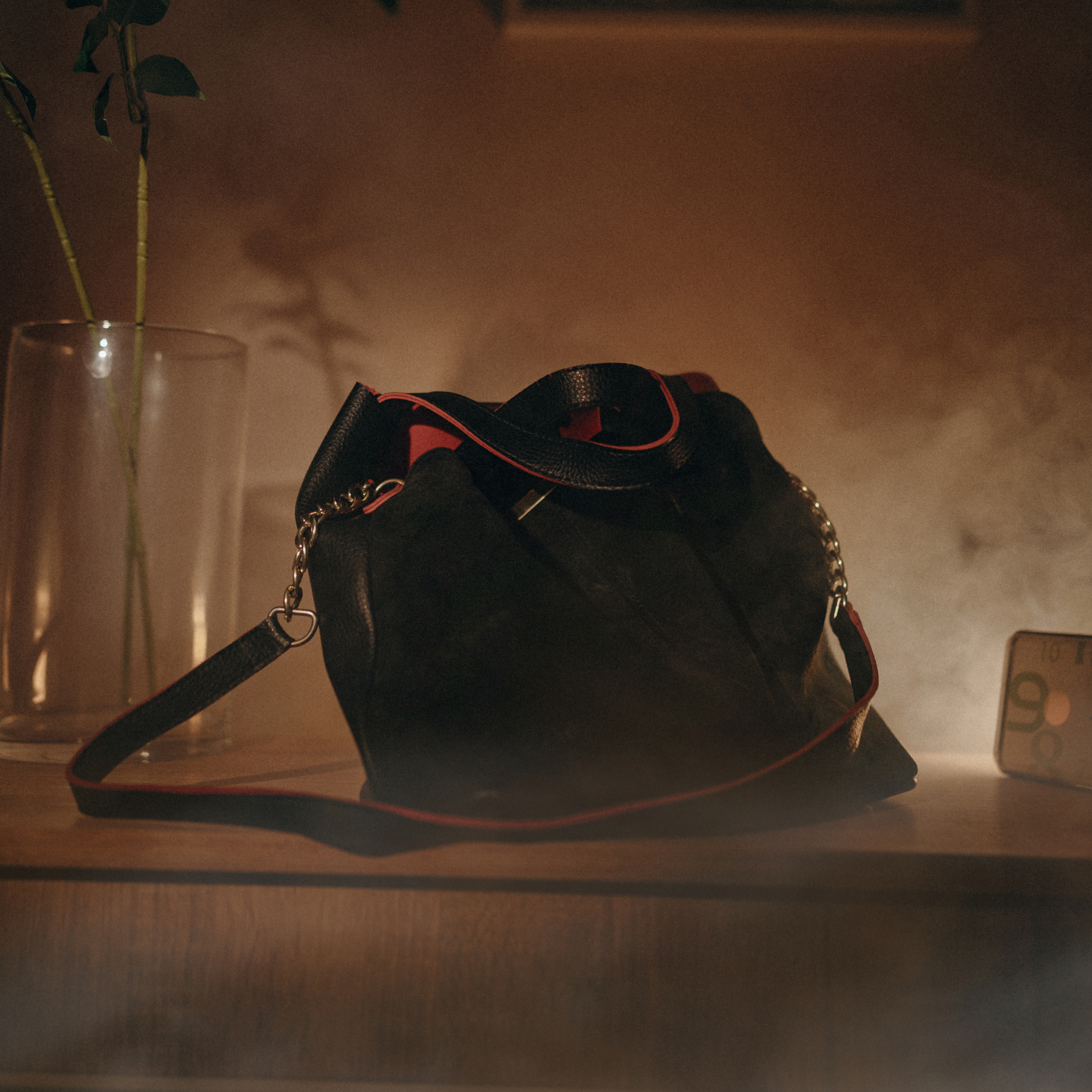
«I dream of returning home and opening my door with these keys»
Oksana was born and lived in Berdyansk and headed a committee in one of the city's 13 neighborhoods. She demonstrated her active civic position by helping people who came to Berdyansk from territories temporarily uncontrolled by the Ukrainian government since 2014. Oksana continued to help when a full-scale war broke out. But life became unbearable, so after the so-called "referendum" she and her husband decided to leave.
«Tears were welling up in my eyes as I was going to leave. It was very painful to leave my home and my city. I loved everything there, but I could not stay under the occupation. It was as if I was split in two: part of me wanted to leave, and part wanted to stay at home. Now I know that the invaders entered the house and took everything out of it. I cherish a few things that I managed to take with me. I can take them and remember Berdyansk, the sea, our air - it's my connection to my home.»
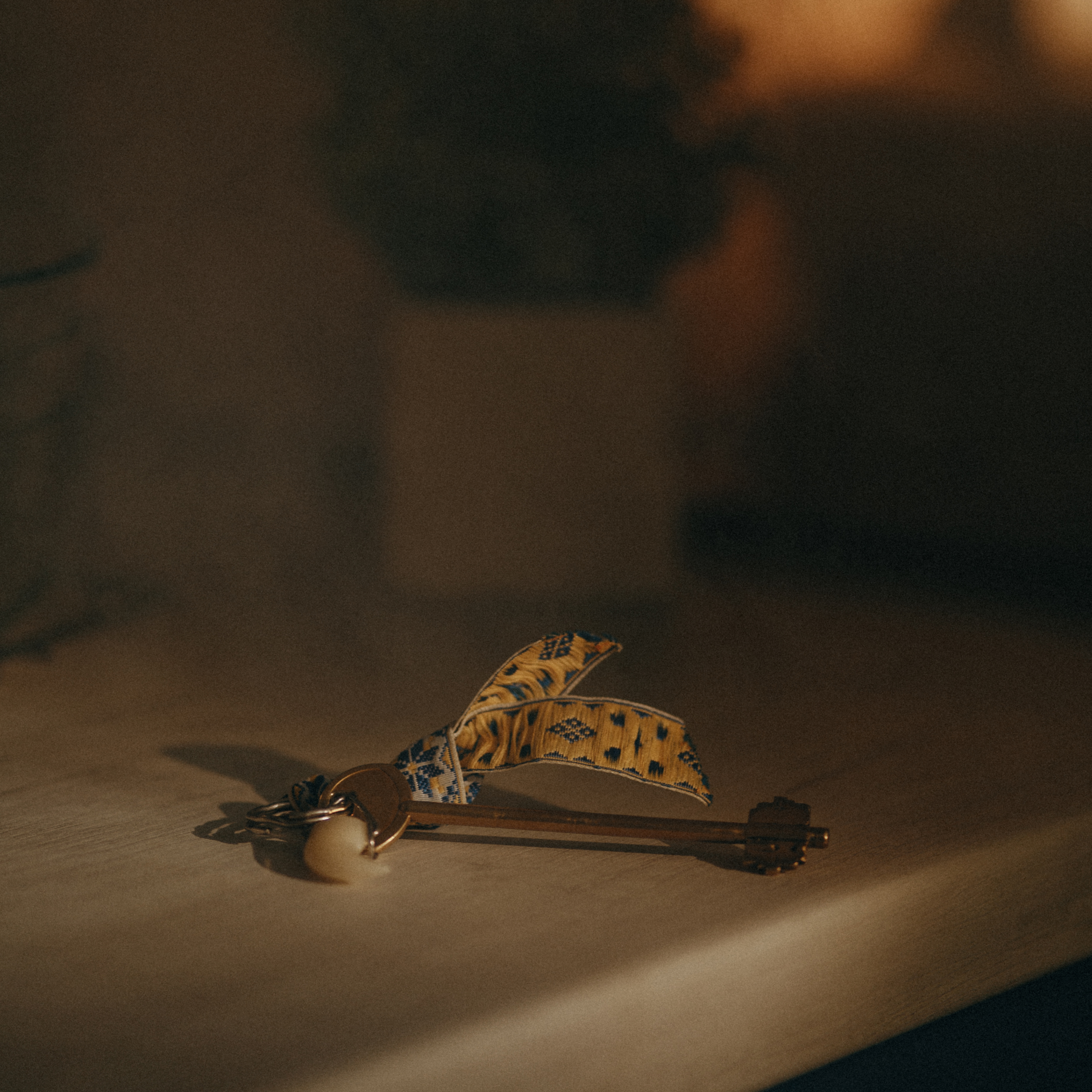
«I held that stone as if I were holding my life»
Natalia and Ania are 16 years old, originally from Mariupol, but lived all their conscious lives in Melitopol, Zaporizhia region. After the outbreak of the full-scale war, the girls and their mothers lived for a year and a half in the non-government-controlled areas of Ukraine and practically never left their homes. One day in Melitopol, Natalia and Ania's friends were found in the trunk of a car. Teenagers began to be kidnapped in the city, and their mothers decided that the girls should leave.
Natalia and Anya passed 15 Russian checkpoints on their own. At one of them, the Russian saw Natalia wearing a blue and yellow necklace and ripped it off. The necklace dug into her neck, but before it broke, Natalia managed to grab one stone, which became her amulet. All Ania has left from home are her earrings, a gift from her family.
«Before the war, we were best friends, and now this is my closest person, my sister», ― the girls say of each other. They always stick together and look forward to seeing their mothers.
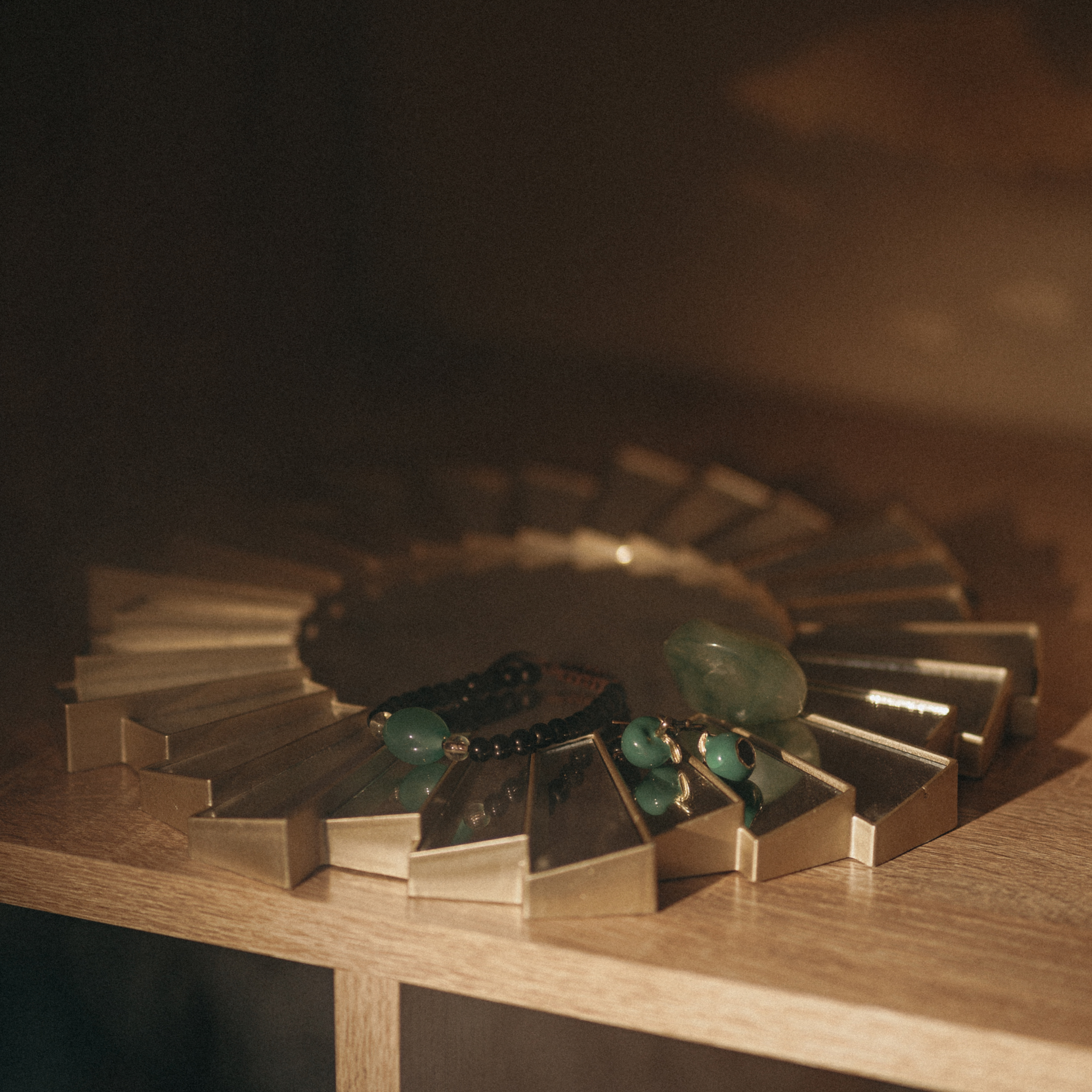
«Whether they would let me in or not… I understood that this is my profession, I had to take it with me»
Olga was born and lived in Kherson. She spent every weekend with her husband and daughter, meeting friends, traveling, and exploring their native Kherson region.
After Russian troops captured Kherson, Olha, and her family lived in the city for seven months."When they told us to go and get Russian passports and the so-called “referendum” started, we decided to leave, we couldn't bear it any longer," she says.
The first thing Olha took with her was a sewing machine and some fabrics. She became a seamstress after finishing eighth grade. After her daughter was born, she sewed almost all her clothes, and her husband set up a workshop for her at home in Kherson. Now Olha and her family live in Lviv. But she admits that they all dream of returning home.
«It's both a job and a hobby for me. Although sewing is a little comforting, we are still at home in our thoughts. A lot of people think about staying in a new place, but we don't. We are going home to Kherson».
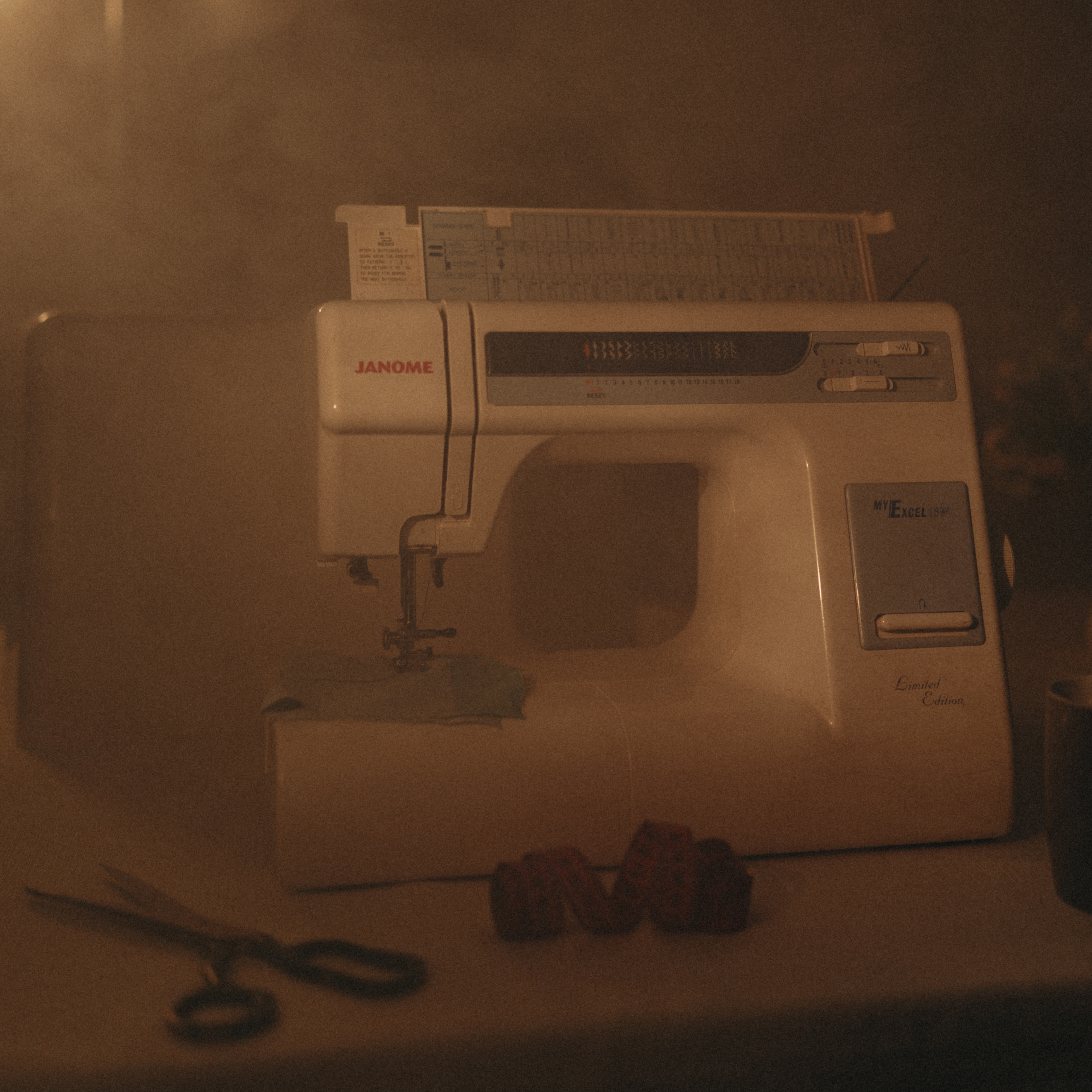
«There are a lot of angels left at home. I hope that someday I will be able to take them all»
Halyna is a mother of two from the city of Dniprorudne, Zaporizhzhia region. Before the full-scale invasion, she lived with her son, who is now 11 years old and devoted most of her time to him. Since March 2022, their city has been temporarily under Russian military control. Halyna and her son lived for about four months in Dniproudne, which was temporarily uncontrolled by the Ukrainian government, and in June they moved to Lviv, where her daughter lives. Halyna shares that she felt a striking difference between staying in another city for a few weeks and moving there permanently.
Some of the most precious things she managed to take with her during the evacuation were a headscarf and a statuette. They have a special meaning for both Halyna and her children.
«I really like headscarves - it's my thing. And my daughter collected the angels. We took with us the ones that were closest to us. We couldn't take any more, because you can't fit the whole house in a suitcase».
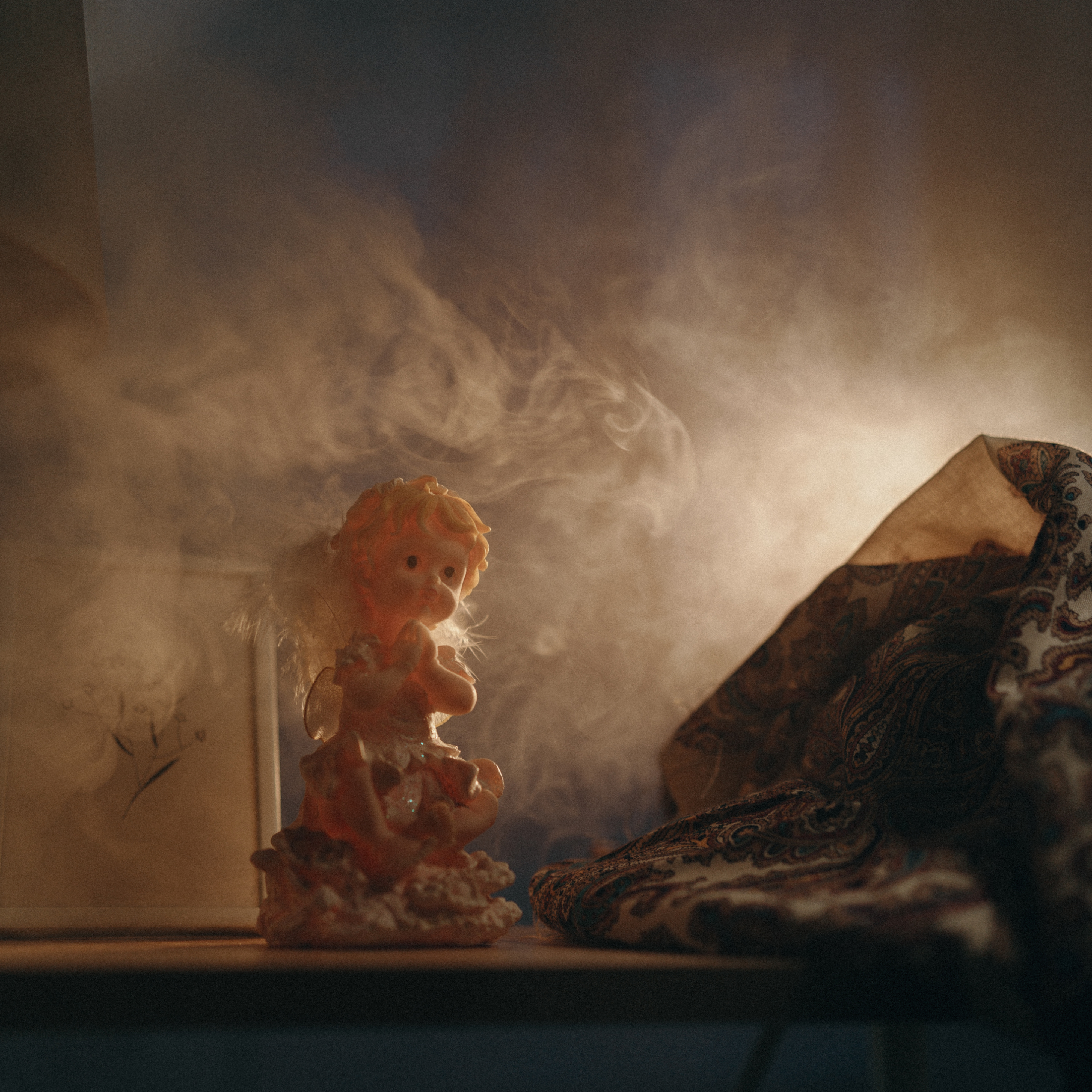
«It took me almost a week to pack my whole life into my backpack. This note has been with me for a year and a half. I wouldn't dare throw it away»
Ivanna is a psychologist from Berdiansk. She started a family in her hometown, had children, and worked in the field of response and prevention of domestic and gender-based violence until 2022. Ivanna and her team were supposed to open a shelter for survivors in the neighboring town of Prymorsk, but the work was halted by the full-scale war. On the second day of the invasion, Berdiansk was under siege, and on the fourth day, Russian troops entered the city. There was no electricity, gas, or communication.
A week later, she was already working at the humanitarian headquarters, providing about 500 consultations to people in crisis who came from Mariupol. From there, Ivanna took in six-year-old Bohdan. At the end of February, a rocket attack killed his parents, so she helped him find a family. The boy was in crisis and needed psychological and medical help. Ivana's close friend and colleague Iryna helped her look after him.
«When I found a way to leave, it was Iryna who helped me along the way. She wrote a note saying that Bohdan had a toothache and where the pills were. Although the note is about Bohdan, there is a lot of important information about us. This note is about our friendship, about the fact that we may never see each other again».
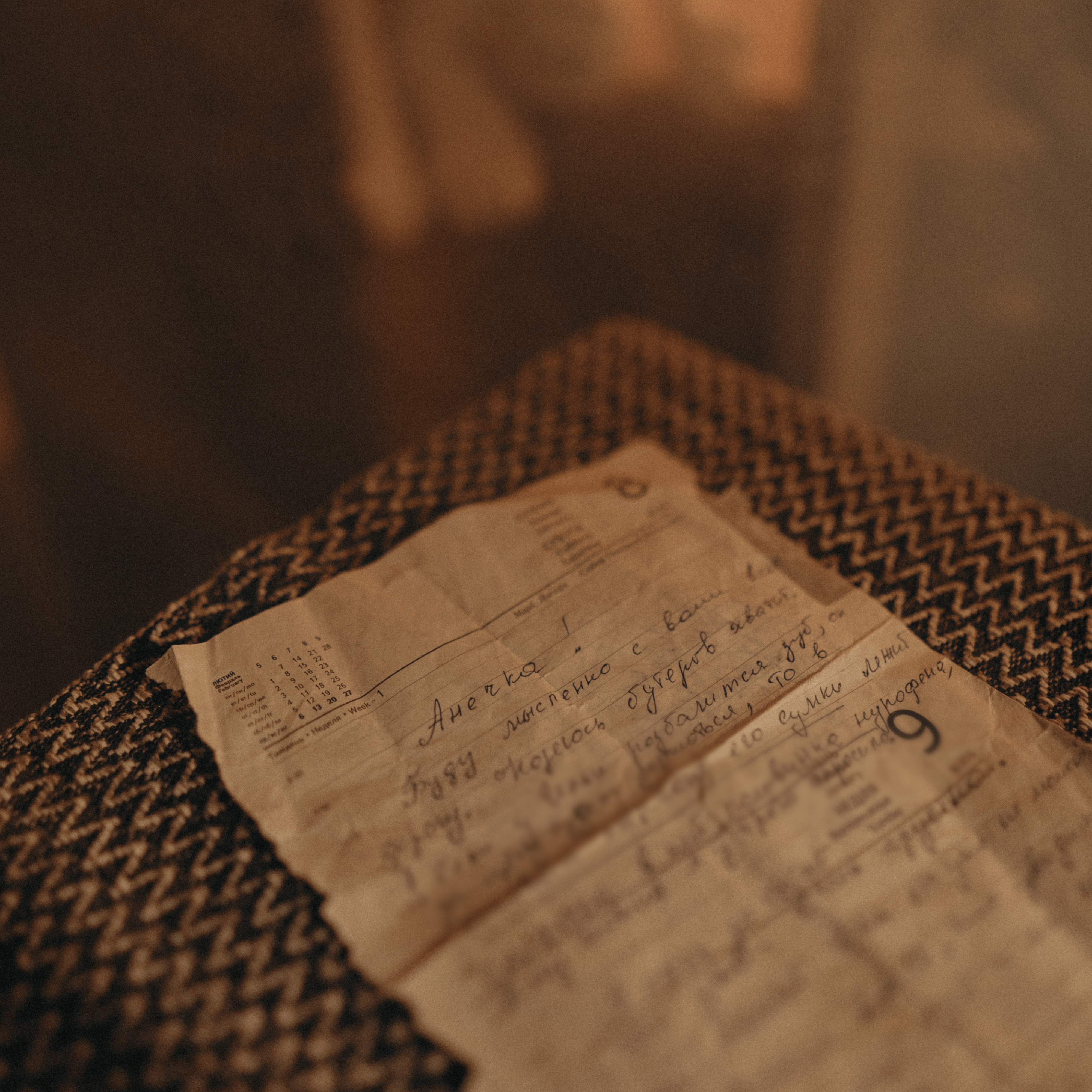
«I needed to think positively and think how I could survive. Louise Hay's book was exactly what I needed»
Valentyna is 51 years old and her whole happy life is connected to Mariupol: she and her children were born there. According to Valentyna, she loves her job, communicating with people, and reading books. When she had read everything at home, she signed up for the library.
In January 2022, Valentyna was diagnosed with cancer. Two weeks before the full-scale invasion, she had returned from Kyiv, where she had been undergoing chemotherapy, borrowed seven new books from the library, and planned to go to work on 24 February to thank her team for their support in the fight against the disease. The full-scale war changed everything: Valentyna and her family moved several times to different parts of Mariupol in search of a safe place, cooked on the street without gas and electricity, and searched for medicines to continue chemotherapy. On 19 March 2022, Valentyna's family woke up to a mine hitting the corner of their house. After that, there was no doubt: that they had to leave.
«I believed I was going away for a few days. Several books stood next to my bed, and I realized that I would read a detective story or a novel later, but now I needed something that would inspire me to fight, to continue my life. After the operation, I began to wonder why such an illness happened to me and decided to read Louise Hay to learn how to think positively. I came to the fifth chemotherapy with red lipstick on.»
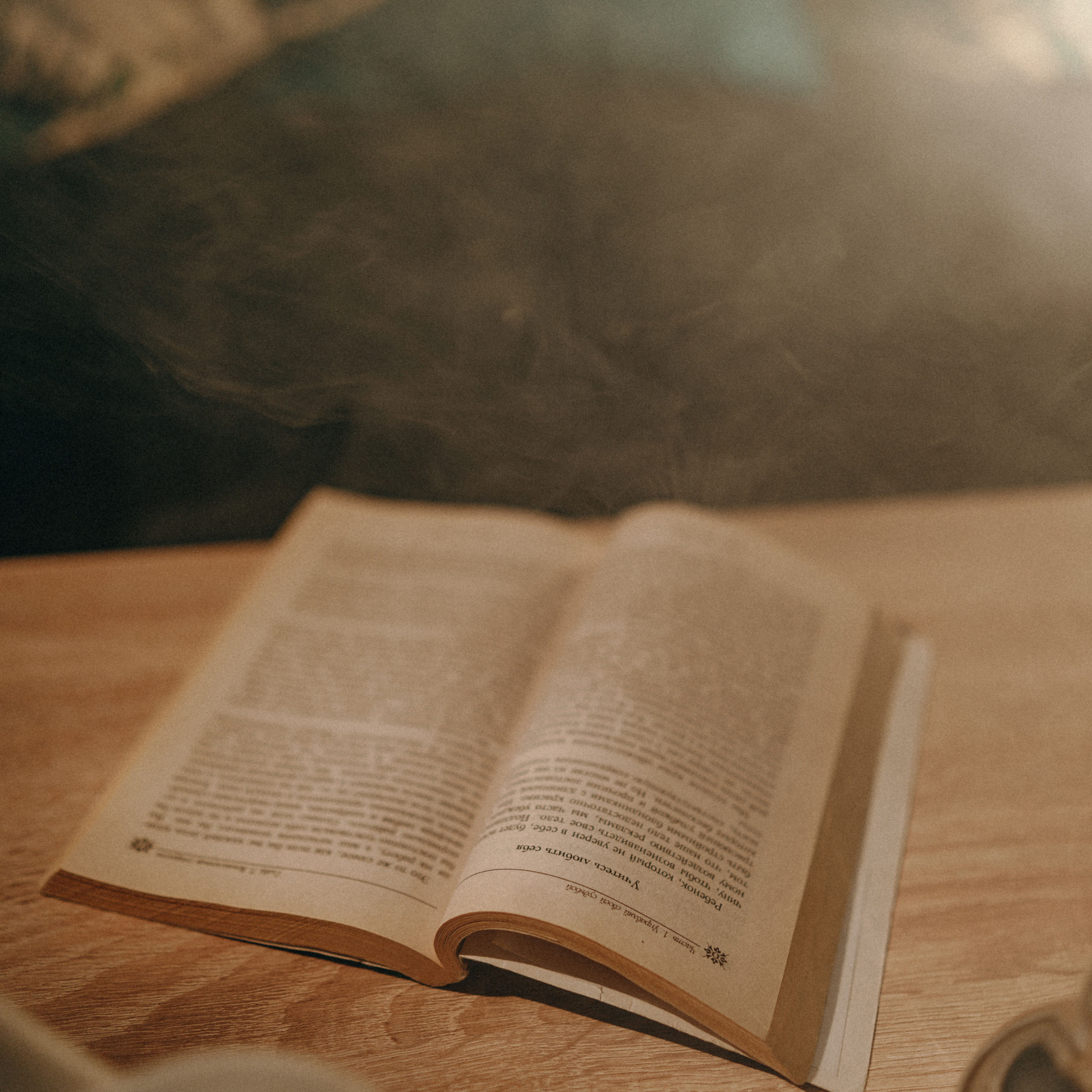
«It was with this ribbon that they took me away. And when they let me go, I was like a ticking time bomb - I had to take valerian meds»
Kherson is 23-year-old Andrii's hometown. He grew up there, did volunteer work and human rights activism, and met a full-scale war and the invasion of the city. But he did not stop helping the Ukrainian army. On 9 May 2022, Andrii was going to photograph an illegal march of Russians, when the Russian military took him into captivity at a checkpoint. The place of deprivation was in Kherson. In July, Andrii was lucky to be released.
«During the first two months after my release, I was inconspicuous, but in the end, I realized I couldn't stay still for long. In any case, I wanted to become a partisan, although I knew that if I was caught again, they would not let me go alive. And the blue and yellow ribbon, which was another reason to captive me, is additional proof that the Russian military did not come to save us, but to destroy the Ukrainian people».
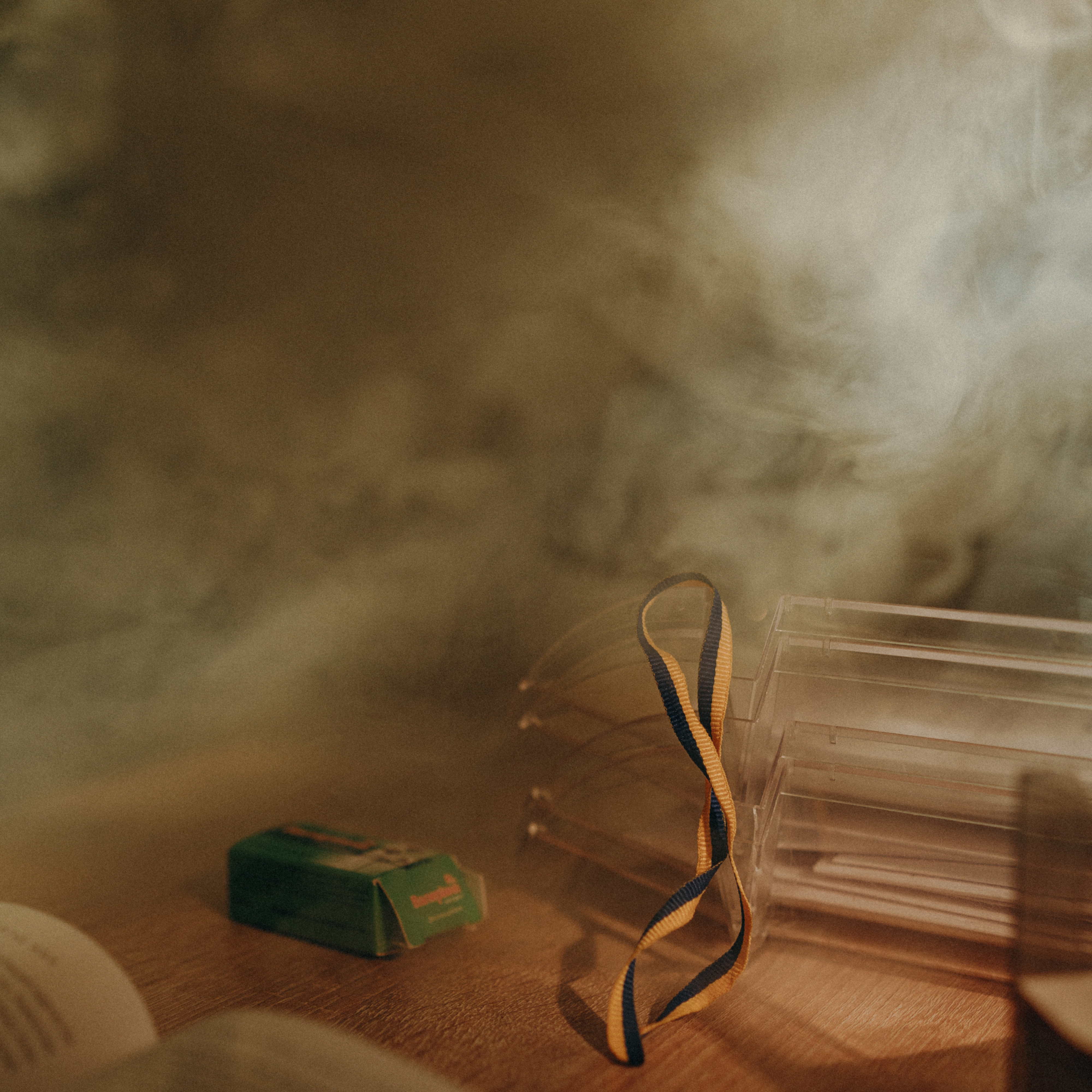
«Some things have a special value. This hat is my favorite because I knitted it in peacetime»
Victoria is from the Zaporizhzhia region and was born in Orikhiv. Today, it is a frontline zone and, as Viktoriia says, the town as such no longer exists. It was not easy for her to leave Orikhiv, as her parents remained there. However, for the safety of her four-year-old son Serhii, Viktoriia was forced to move - first to Zaporizhzhia and then to Poltava.
«In Orikhiv, we used to go down into the cold basement day and night to hide from the shelling. My husband and I understood that the consequences for the child and his health could be very bad, and even then there were big problems with medicines in the city, we couldn't even buy Validol. The stress made it hard for me to even understand my son, so we moved for his safety. For me, knitting is a part of my past life, when everything was quiet. It's very calming. I have been doing this for over 15 years. Pleasant memories warm me when I look at the things I've woven before.»
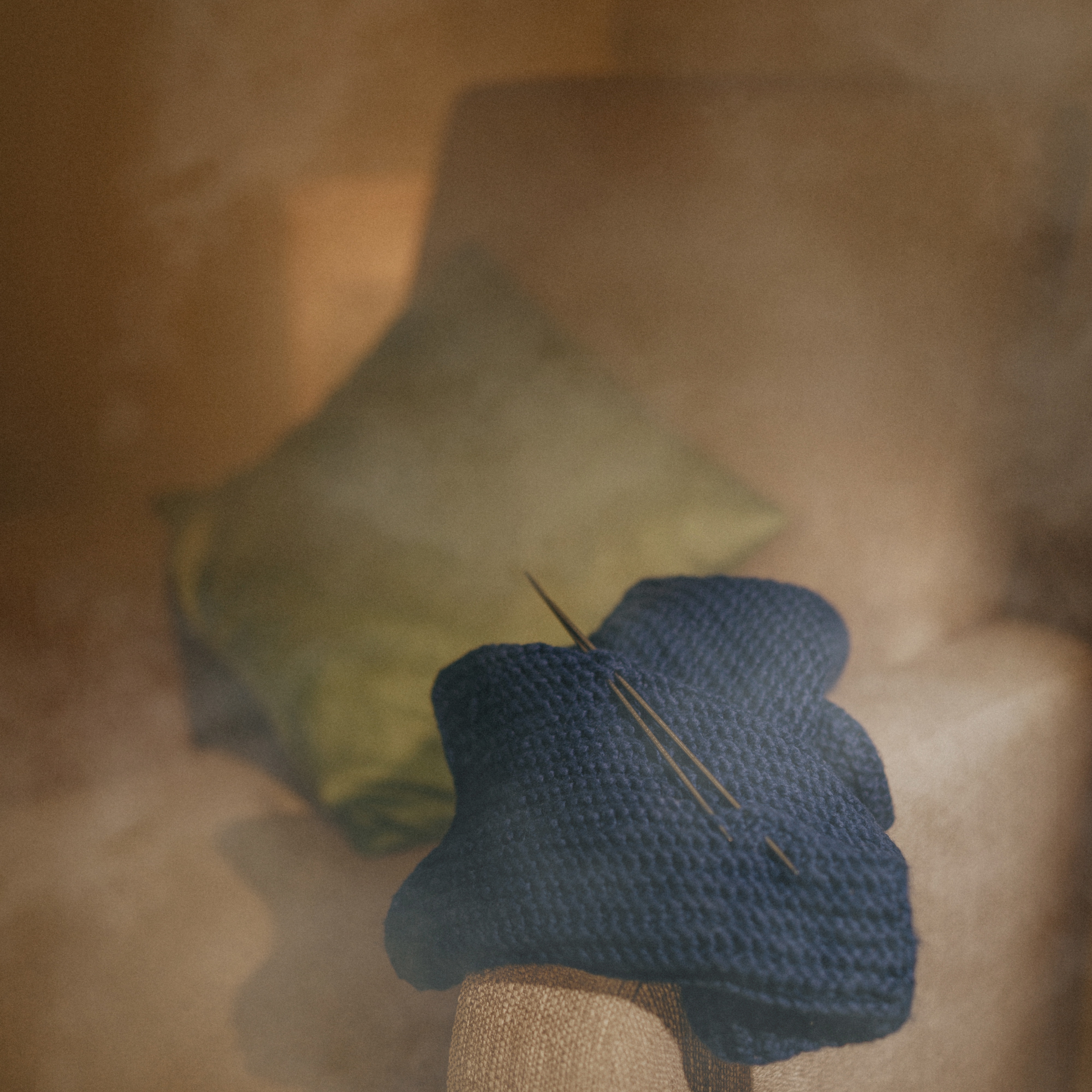
*All characters' names have been changed for security reasons
The Survivor Relief Centers were started on the initiative of the Office of the Deputy Prime Minister for European and Euro-Atlantic Integration of Ukraine, assistance of the Government Commissioner for Gender Policy, with support from the United Nations Population Fund (UNFPA) thanks to the financial support of the governments of Belgium, France, Sweden and in cooperation with local authorities and executive partners.

